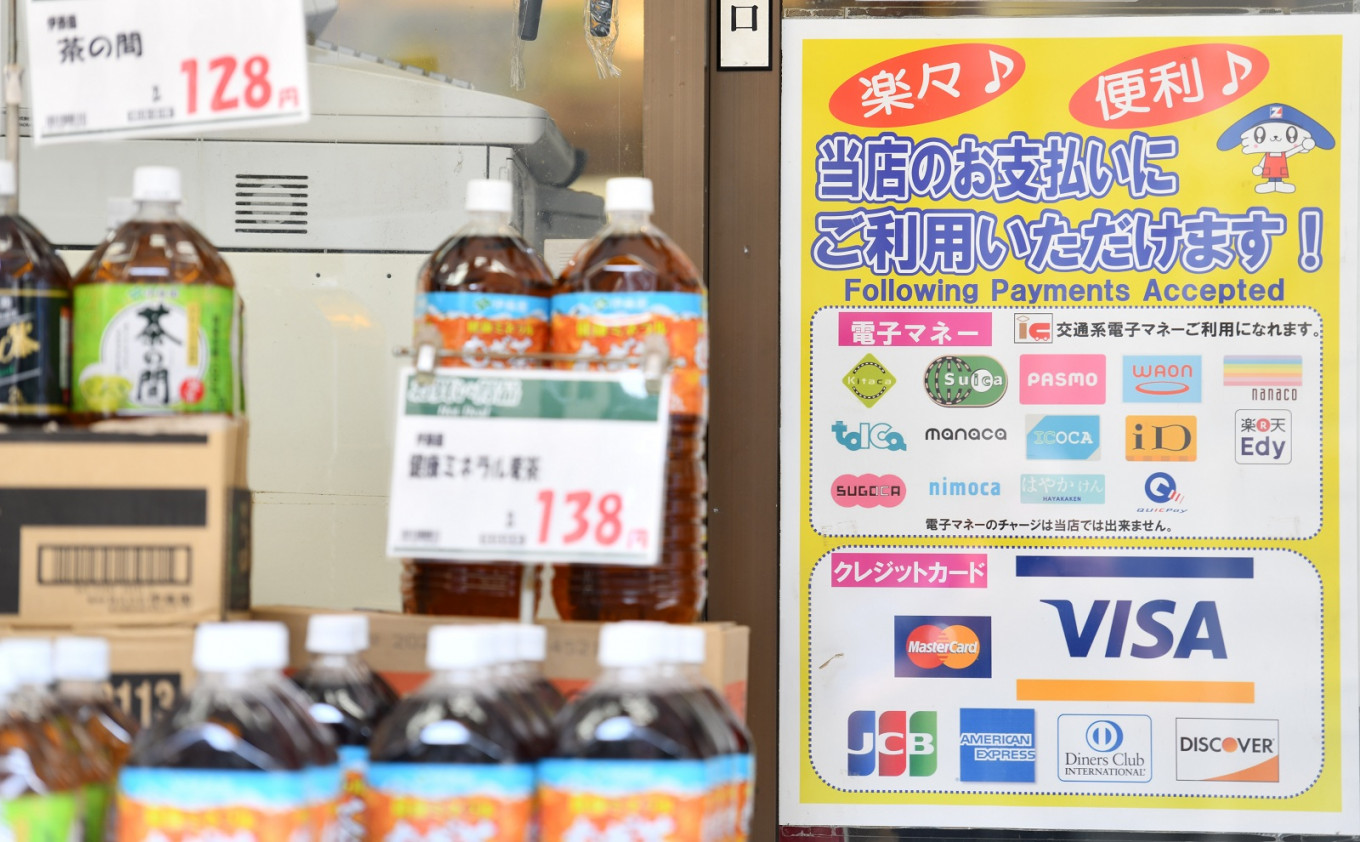Nearly 20 percent of Japan households using e-money but cash still king
In the survey published on Monday and conducted between June and July, 18.5% of households said they use electronic money, such as smartphone apps and debit card payments, on shopping trips where 1,000 yen ($9.17) or less is spent, up from 15.4 percent in the previous year.
Change Size
 This photo taken on July 25, 2019 shows a poster offering cashless payments displayed outside a supermarket in Tokyo. Once a pioneer in cashless transactions, Japan is lagging behind as the world's biggest economies increasingly embrace electronic payments because its ageing population still prefers physical money.
(AFP/Toshifumi Kitamura)
This photo taken on July 25, 2019 shows a poster offering cashless payments displayed outside a supermarket in Tokyo. Once a pioneer in cashless transactions, Japan is lagging behind as the world's biggest economies increasingly embrace electronic payments because its ageing population still prefers physical money.
(AFP/Toshifumi Kitamura)
A
lmost a fifth of Japanese households use electronic money for small purchases, a survey by a central bank-affilated research institute showed, up from a year ago and a sign the country's cash-hoarding culture is changing.
In the survey published on Monday and conducted between June and July, 18.5% of households said they use electronic money, such as smartphone apps and debit card payments, on shopping trips where 1,000 yen ($9.17) or less is spent, up from 15.4 percent in the previous year.
Among single-person households - 43 percent of whom are in their 20s and 30s - the ratio was much higher at 35.6 percent, suggesting government efforts to prod Japanese to go cashless may be paying off, at least among the younger generation.
Despite the growth in electronic payments, Japan's "cash-is-king" mentality remains entrenched with the survey showing 84% still use notes and coins for small purchases.
And for payments exceeding 10,000 yen and up to 50,000 yen, 48.5 percent of households said they pay by cash and 3.4 percent by electronic money, the survey showed.
A low crime rate, years of ultra-low interest rates and a nationwide network of automatic-teller machines (ATMs) have long made cash appealing in Japan, giving people few reasosn to shift to cashless payments.
Prime Minister Shinzo Abe is pushing to make more Japanese switch to cashless payments to allow stores to automate sales estimates and banks to cut back on costly ATMs.
Shoppers have recently been encouraged to ditch cash for e-money after the government introduced a rebate program to ease the pain of a sales tax hike on Oct. 1.









